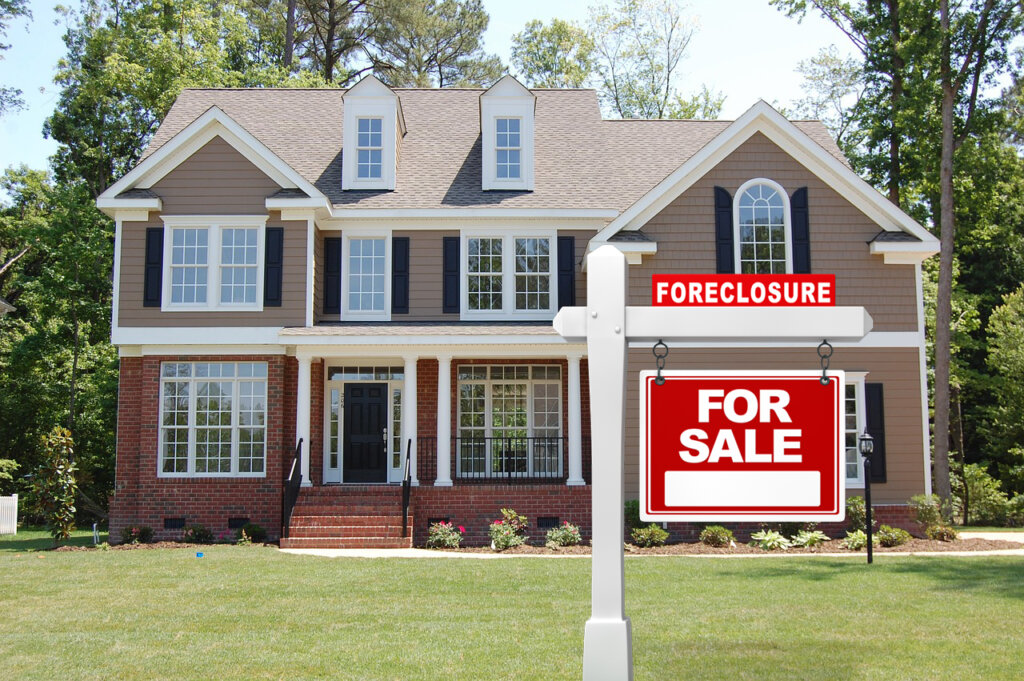If you’re a homeowner dealing with financial stress, understanding the distinction between preforeclosure and foreclosure is crucial. While both situations involve the risk of losing your home, they represent different stages of the process — each with its own challenges and opportunities.
In this guide, we’ll break down what separates preforeclosure from foreclosure, explore what each phase means for homeowners, and discuss the financial implications, investment potential, and strategies to protect your property.
Key Differences Between Preforeclosure and Foreclosure
Preforeclosure marks the initial stage of the foreclosure process. It begins when a homeowner falls behind on mortgage payments, prompting the lender to issue a notice of default. This notice serves as a warning, giving the homeowner a chance to resolve the missed payments before things escalate.
Foreclosure, on the other hand, is when the lender officially takes legal action to repossess the property due to continued non-payment. At this stage, the home may go to auction or be taken back by the bank, resulting in the loss of ownership.
What Happens During Preforeclosure?
In preforeclosure, homeowners are still in control of their property and have options to avoid foreclosure entirely. After receiving a notice of default, they can:
- Negotiate a loan modification
- Pursue a short sale
- Refinance the mortgage
- Sell the property before foreclosure proceedings begin
If you’re in this stage, taking early action can help preserve your credit and protect your equity. Prepping your home for sale and working with experienced professionals can also boost your chances of a successful outcome.
What to Expect During Foreclosure
Once a home enters foreclosure, the situation becomes more serious. Homeowners lose most control, and legal proceedings begin to recover the lender’s investment. Depending on the state, foreclosure can happen through:
- Judicial foreclosure (court involvement required)
- Non-judicial foreclosure (handled without court intervention)
The end result is typically a foreclosure auction or bank repossession, and the homeowner’s credit and equity often take a substantial hit.

Image by Pixabay
Preforeclosure vs. Foreclosure: How Do They Compare?
Let’s break it down further:
Price Differences
- Foreclosures are usually cheaper. Since the bank owns the home, they’re eager to sell quickly, often at discounted prices.
- Preforeclosures are generally closer to market value. Sellers still own the home and aim to avoid foreclosure, so they may negotiate but won’t drop the price as drastically.
Property Condition
- Preforeclosure homes are typically occupied and maintained.
- Foreclosures can be vacant and neglected, sometimes sitting empty for months, which may lead to deterioration. That said, savvy investors can still find gems with minimal repairs.
Investment Strategy
- Foreclosures are great for fix-and-flip investors who want low-cost properties to renovate and resell.
- Preforeclosures are ideal for long-term rentals or Airbnb investments, as they often require less upfront work and are in livable condition.
From Preforeclosure to Foreclosure: A Critical Crossroads
If a homeowner doesn’t resolve the issue during preforeclosure, the situation can quickly escalate into a full foreclosure. Acting quickly during preforeclosure is key — once the lender initiates foreclosure, legal complexities and financial consequences can multiply.
Should You Sell During Preforeclosure or Foreclosure?
Selling in Preforeclosure
Selling your home before foreclosure hits gives you time to:
- Avoid further credit damage
- Potentially recover equity
- Maintain control of the sale process
Buyers are often more attracted to these properties since they’re in better shape, and sellers can negotiate better terms.
Selling in Foreclosure
By the time a property is in foreclosure, the bank is calling the shots. The sale usually happens:
- Quickly and below market value
- With limited or no involvement from the homeowner
These homes also carry a reputation for being distressed, which may turn off some buyers and drive down the price even more.
Making the Right Choice: Preforeclosure vs. Foreclosure
When choosing whether to sell during preforeclosure or foreclosure, consider these key factors:
Financial Consequences
- Preforeclosure sales can protect your credit score, preserve more equity, and offer more control.
- Foreclosure sales often mean less money and longer recovery times financially.
Timing Matters
Time is of the essence. Selling during preforeclosure gives you flexibility, while foreclosure leaves little room for negotiation or delay.
Get Expert Help
Real estate professionals, financial advisors, and attorneys can help you understand your options and guide you through the process. They’ll help you:
- Assess your situation
- Strategize the best course of action
- Connect with serious buyers or cash investors
Can You Avoid Losing Your Home in Preforeclosure?
Absolutely. There are several mitigation strategies available to homeowners in preforeclosure:
- Loan Modification: Renegotiate your loan terms with your lender to reduce monthly payments or interest rates.
- Short Sale: Sell your home for less than what you owe, with your lender’s approval, to settle the debt and avoid foreclosure.
- Deed in Lieu of Foreclosure: Voluntarily transfer ownership to the lender, satisfying the debt without undergoing foreclosure.
Professional Guidance
- Housing counselors can walk you through your options.
- Real estate attorneys can negotiate with lenders and represent your interests.
- Mortgage servicers can assist with refinancing or loan restructuring.
Final Thoughts
Understanding the difference between preforeclosure and foreclosure could be the key to protecting your home and your financial future. While both are challenging, preforeclosure offers a window of opportunity to act before the situation worsens.
Whether you’re exploring mitigation options or thinking of selling, taking early action can make all the difference.
Need Help Navigating Preforeclosure or Foreclosure?
At DreamBridge Finance, we’re here to help you take control of your situation. Whether you’re facing preforeclosure or foreclosure — or simply looking to sell your home in Dallas or DFW — we provide solutions that work for your timeline and goals.
Reach out today to learn how we buy houses fast and help homeowners get back on track — no matter where they are in the process.
